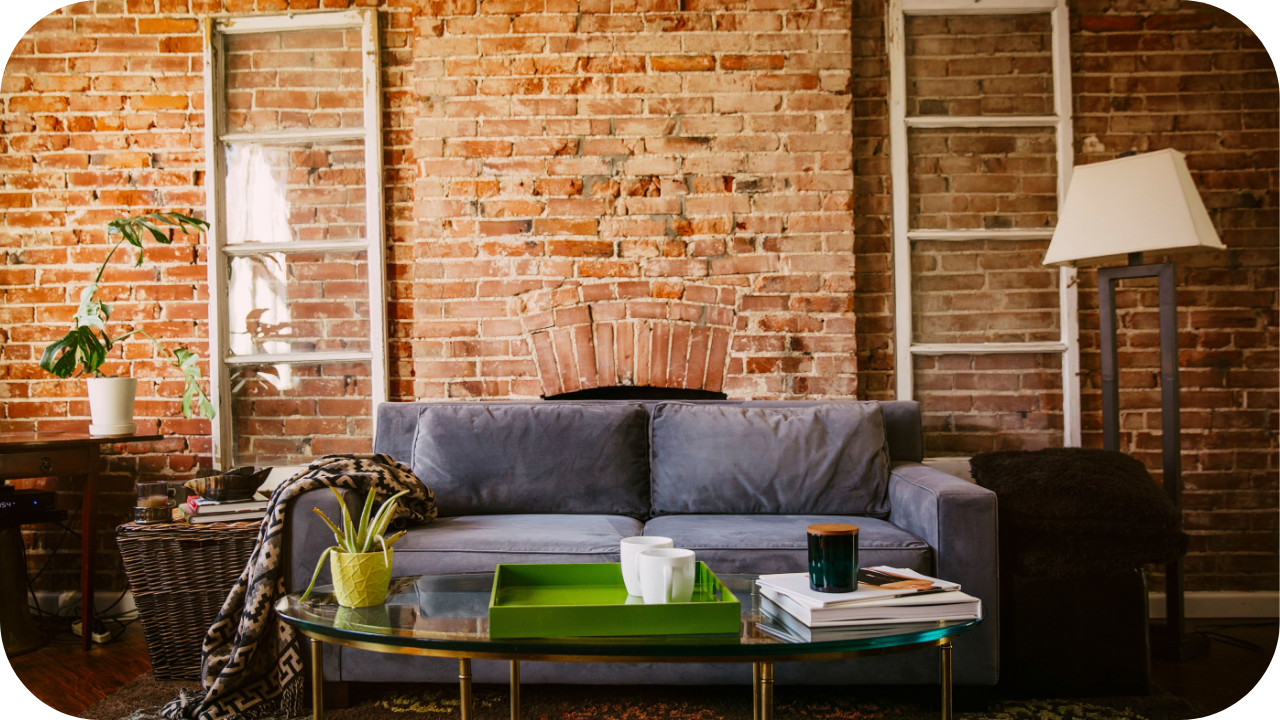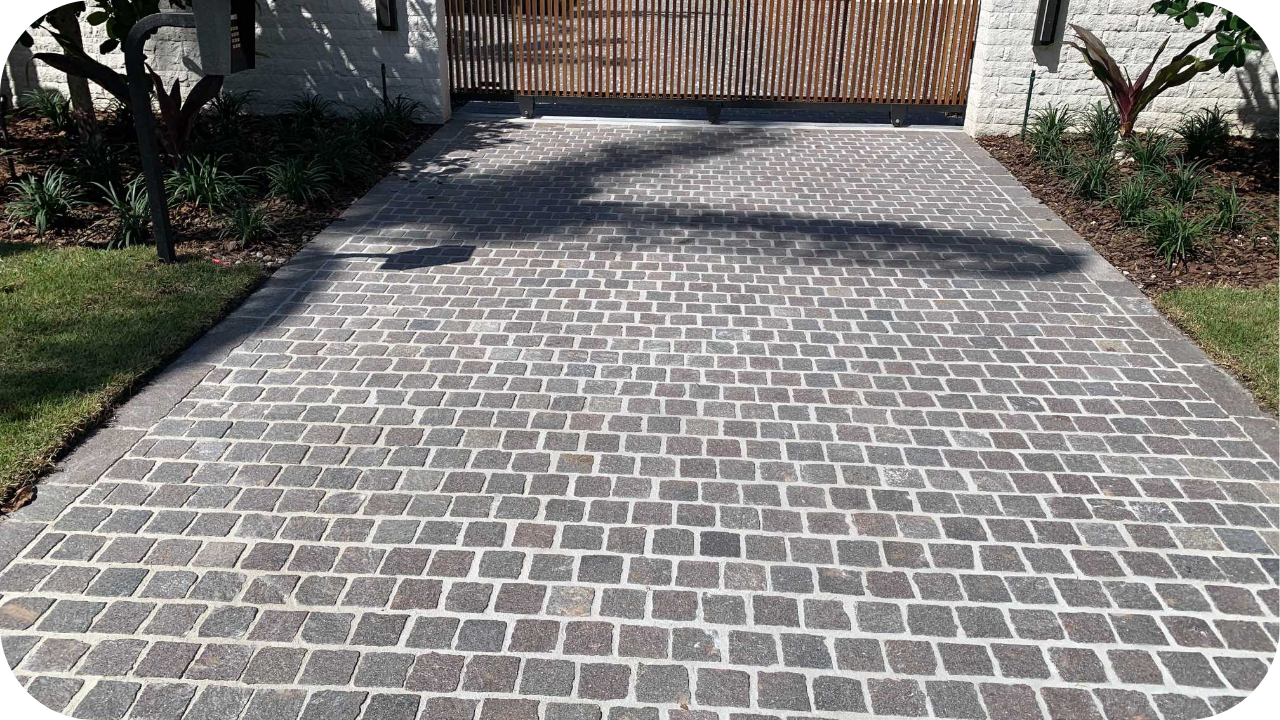
Warm, earthy, and effortlessly timeless, Clayburn Brick is fast becoming the go-to choice for architects and homeowners looking to elevate both interiors and exteriors.
Whether you’re building a striking feature wall or refining your home’s façade, this natural clay brick brings a handcrafted charm that modern materials cannot replicate.
Its soft variation and textural depth create a grounded, organic look that blends seamlessly with contemporary or heritage design. If you’re after classic appeal with lasting performance, Clayburn delivers on both style and substance.
What Is Clayburn Brick?
Clayburn Brick is a premium clay brick known for its soft texture, warm tones, and timeless character. Made from high-quality clay and kiln-fired for strength, it offers a natural finish that suits both traditional and modern builds.
Each brick features subtle colour variation, adding depth and authenticity to walls. Available in both new and reclaimed options, Clayburn brings flexibility to a wide range of design styles.
Its handcrafted appearance sets it apart from uniform, mass-produced bricks, making it ideal for projects that require visual richness. When compared to standard bricks, Clayburn stands out for its durability, natural appeal, and architectural elegance.
Why Use Clayburn Brick for Feature Walls?
To create a feature wall that feels layered and considered, the brick you choose must deliver warmth, tone, and texture. These benefits make Clayburn Brick a smart, lasting choice.
1. Offers Rich Visual Texture and Depth
Clayburn Brick delivers organic variation and a tactile finish that adds natural warmth to any wall. Its soft colour shifts and subtle texture give interior surfaces visual dimension, helping you create layered and expressive room designs.
2. Complements Timber, Stone, and Neutral Accents
This brick pairs beautifully with timber, concrete, and neutral tones, making it ideal for cohesive design schemes. The warm, earthy finish supports a balanced look, allowing other textures and materials in the room to shine through effortlessly.
3. Creates a Lasting Focal Point in Any Room
Used around fireplaces, hallways, or living areas, Clayburn Brick creates a grounded focal point that draws attention. Its natural finish introduces visual weight and character without overwhelming the space, making it perfect for minimalist or styled interiors.
4. Adds Character Without Overcomplicating the Design
For those seeking a quiet statement, Clayburn Brick offers character and charm without excessive detailing. Its warm tones and soft finish introduce style and personality while keeping the overall design clean, simple, and easy to live with.
5. Suits Both Residential and Commercial Interiors
Clayburn Brick transitions easily between residential and commercial environments. Whether in a home, café, or boutique showroom, its charm, resilience, and understated elegance make it a functional and design-driven material for feature applications.
How Clayburn Brick Performs on External Walls and Façades
To create an exterior that feels enduring and designed with purpose, your walling material must perform in every season. These qualities make Clayburn Brick ideal for outdoor architectural use.
1. Ideal for Façades, Fences, Garden Walls, and Piers
Clayburn Brick can be used across full front elevations or as accents in boundary walls, fencing, or garden bed features. Its refined colour and consistent finish suit both residential streetscapes and contemporary outdoor architecture.
2. Withstands Harsh Climates and Seasonal Shifts
Made to endure Australia’s unpredictable weather, Clayburn Brick resists damage from moisture, heat, wind, and cold. Its fired surface maintains strength through long summers and wet winters, without cracking, shifting, or fading over time.
3. Provides UV, Fire, and Moisture Resistance
The brick’s dense structure and high-quality clay composition make it naturally resistant to environmental exposure. Clayburn performs well in bushfire zones and coastal areas alike, offering peace of mind alongside its architectural beauty.
4. Maintains Colour and Texture with Minimal Effort
Unlike painted or rendered finishes, Clayburn Brick does not peel or wear unevenly. Its raw clay surface retains its tone and texture, requiring little upkeep while preserving the façade’s character year after year.
5. Adds Thermal Mass and Insulation Benefits
Clayburn Brick supports energy efficiency by absorbing and regulating heat, helping to reduce indoor temperature fluctuations. This natural thermal mass quality enhances passive design strategies and supports sustainable home construction practices.
Clayburn Brick vs Other Brick Types
Clayburn Brick offers a refined and natural finish, but what makes it different from other bricks commonly used in Australian projects? Here’s how it compares in performance, aesthetics, and long-term appeal:
1. Outperforms Recycled Brick in Consistency and Finish
While recycled bricks offer charm, they often lack uniform sizing, structural integrity, and surface consistency. Clayburn Brick maintains quality across every piece, giving designers better control and builders easier installation with fewer irregularities.
2. Superior to Pressed Brick in Natural Texture and Tone
Pressed bricks tend to appear more rigid and formal, with smoother faces and sharper edges. Clayburn’s earthy tones, irregular texture, and handcrafted character create a warmer, more relaxed aesthetic suited to timeless designs.
3. Offers Greater Design Flexibility Than Wirecut Brick
Wirecut bricks are often uniform and functional but lack depth and surface interest. Clayburn’s slight surface variation allows for creative applications in both modern and traditional spaces, with more visual movement across the wall.
4. Delivers Better Long-Term Performance in Harsh Environments
Standard bricks can be prone to fading, moisture absorption, or salt damage over time. Clayburn Brick is fired for durability and weather resistance, offering low porosity and strong colour retention across decades of use.
5. Creates a More Refined Look Than Painted or Bagged Brick
Unlike bricks that rely on surface treatments like paint or bagging for aesthetic effect, Clayburn Brick delivers raw, baked-in colour and texture that lasts. Its natural look evolves beautifully without peeling, staining, or uneven wear.
How to Incorporate Clayburn Brick into Your Project
Whether you’re creating an interior feature or a full outdoor façade, thoughtful placement and finishing details can elevate your final outcome. Here are practical ways to bring out the best in Clayburn Brick:
1. Use Classic or Creative Layout Patterns
Clayburn Brick can be laid in traditional running bond or stacked for a clean, modern finish. For added visual interest, try herringbone or vertical soldier courses to highlight design features or frame architectural details.
2. Pair with Stone Pavers or Walling Stone
Using Clayburn Brick alongside natural stone creates a layered texture across surfaces. Whether matching earthy tones or creating contrast, this pairing reinforces a cohesive material story across alfresco areas, courtyards, and feature entryways.
3. Choose the Right Grout Colour and Joint Style
Mortar colour significantly affects the finished look. For a blended effect, match the grout to the brick tone. For contrast, opt for lighter joints. Recessed or flush finishes can also influence the wall’s depth and detail.
4. Reference Product Galleries for Inspiration
Before finalising your design, browse real-life projects to visualise how Clayburn Brick works in different settings. Image galleries can reveal layout combinations, material pairings, and styling techniques that align with your project goals.
5. Work with a Designer or Builder Familiar with Brickwork
Engaging a professional who understands how to handle natural clay bricks will ensure precision and longevity. An experienced builder can advise on bond patterns, mortar types, and finishing touches that enhance Clayburn’s character and performance.
How to Maintain Clayburn Brick for Lasting Performance
Clayburn Brick requires very little upkeep, but regular care helps preserve its natural texture and appearance. Here are the best practices to keep your brickwork looking its best over time:
- Clean Gently with Water and a Soft Brush: Avoid harsh chemicals or pressure washers. Use a hose or bucket of water with a soft-bristled brush to remove dust, cobwebs, or surface dirt without affecting the brick’s finish.
- Inspect Mortar Joints Annually: Mortar can degrade over time, especially in exposed areas. Check for cracks or erosion once a year and touch up joints as needed to maintain structural integrity.
- Avoid Using Sealers Unless Specified: Clayburn Brick is naturally breathable and doesn’t usually require sealing. If sealant is applied, make sure it’s suitable for clay-based bricks and allows vapour permeability.
- Allow Natural Weathering for Character: One of Clayburn’s strengths is how it ages. The surface develops subtle changes over time, enhancing its rustic charm rather than diminishing its value or look.
- Monitor High-Exposure Areas for Efflorescence: In spots exposed to water or humidity, white salt deposits can occasionally appear. These can be brushed off easily with a dry cloth or diluted vinegar solution.
Final Thoughts
Clayburn Brick delivers timeless warmth, texture, and character for both indoor and outdoor spaces. Splendour in Stone proudly supplies reclaimed Clayburn Brick, perfect for creating authentic feature walls and façades.
Visit our showroom or speak with our expert team to request samples, explore design options, and get professional advice and installation support tailored to your architectural vision.
More To Explore

Cobblestone Paving in Craigieburn: Timeless Appeal Outdoors
In Craigieburn, outdoor spaces are becoming more than just functional areas; they’re extensions of the home where style meets everyday living. Cobblestone paving captures this

Granite Pavers Supplier Australia: Where to Buy Quality Stone
Granite pavers are one of the most durable and stylish paving options in Australia. Their natural strength, weather resistance, and unique colour variations make them


